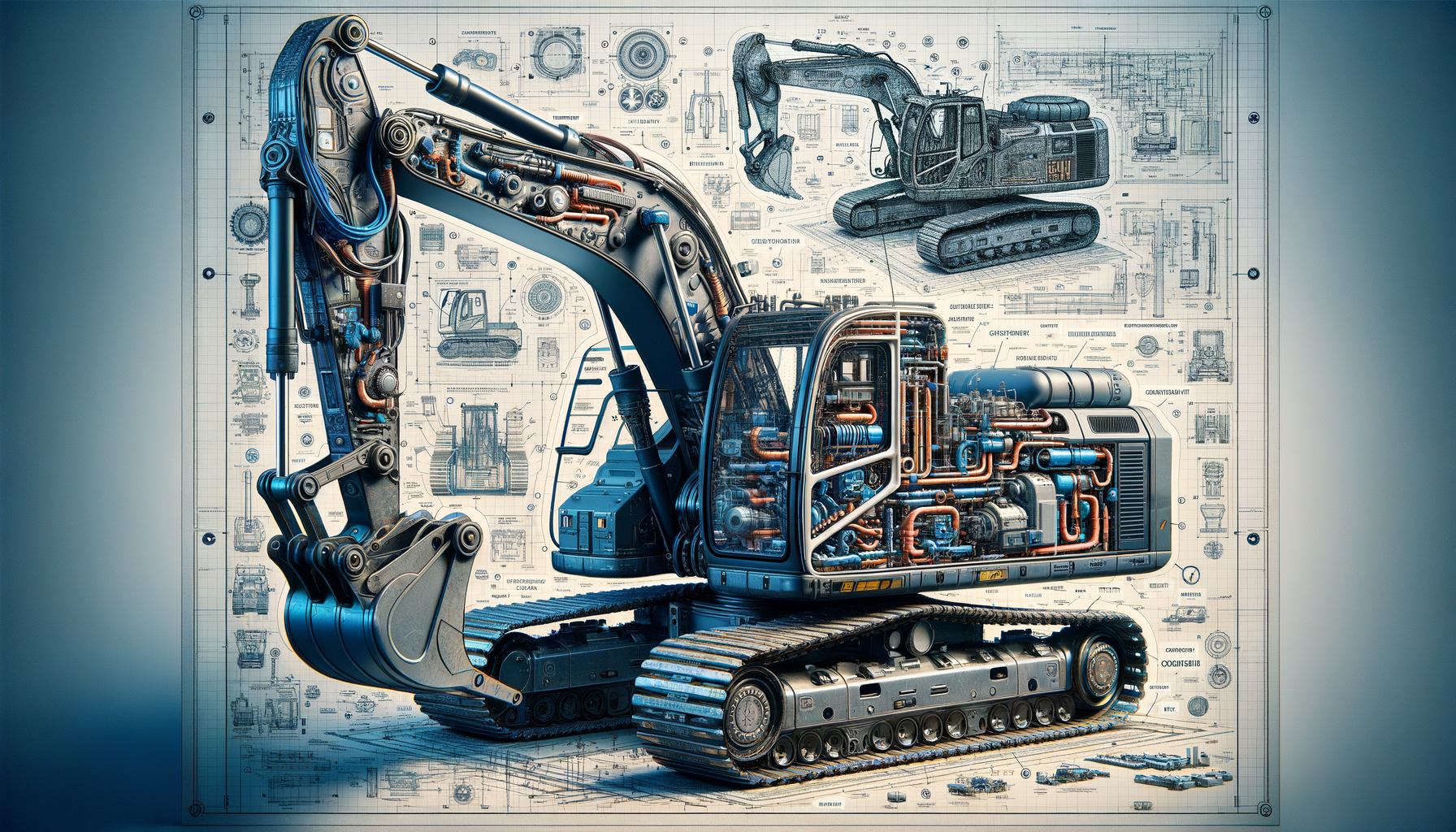The Role of Excavators in Modern Construction
Excavators are indispensable in the world of construction, serving as the backbone for various projects. These robust machines are primarily used for digging, lifting, and moving large objects, making them vital for any construction site. The versatility of an excavator is unmatched, as it can be equipped with different attachments like buckets, augers, and breakers to perform a wide range of tasks. This adaptability not only boosts productivity but also ensures that projects are completed efficiently.
The significance of excavators extends beyond their functional capabilities. In the fast-paced construction industry, time is money, and having the right equipment can save both. Excavators streamline operations by reducing the need for manual labor, which in turn minimizes the risk of accidents on site. Moreover, their ability to perform multiple tasks with precision enhances the overall quality of construction work. Whether you’re involved in building roads, bridges, or residential complexes, an excavator is an asset that can elevate the standard of your projects.
Types of Excavators: Choosing the Right One
Excavators come in various types, each designed for specific tasks and environments. Understanding the differences can help you select the right machine for your needs. The most common types include:
- Crawler Excavators: Known for their stability and strength, these are ideal for uneven terrains and heavy-duty tasks.
- Wheeled Excavators: More mobile and faster on flat surfaces, these are perfect for urban environments.
- Mini Excavators: Compact and versatile, these are suitable for small-scale projects and tight spaces.
- Long Reach Excavators: Equipped with extended arms, these are used for tasks that require reaching over obstacles or into deep areas.
When choosing an excavator, consider factors such as the project size, site conditions, and the specific tasks you need to perform. For instance, if you’re working on a large construction site with rough terrain, a crawler excavator would be the most suitable choice. On the other hand, a mini excavator would be more appropriate for landscaping tasks in confined areas.
Key Features to Consider When Buying an Excavator
Investing in an excavator is a significant decision, and understanding the key features can guide you in making the right choice. Here are some critical aspects to consider:
- Engine Power: Determines the machine’s ability to perform heavy-duty tasks. Higher horsepower engines are suitable for more demanding projects.
- Operating Weight: Affects the stability and lifting capacity of the excavator. Heavier machines are generally more stable.
- Hydraulic Systems: Essential for the machine’s performance, affecting speed, efficiency, and power.
- Cab Comfort: Operator comfort is crucial for productivity, so look for features like adjustable seats, climate control, and intuitive controls.
Additionally, consider the availability of attachments and the ease of maintenance. A machine that supports a wide range of attachments can adapt to various tasks, increasing its utility. Regular maintenance is vital for longevity, so choose a model known for its reliability and ease of service.
Maintenance Tips for Prolonging Excavator Life
Proper maintenance is crucial for ensuring the longevity and performance of an excavator. Regular checks and servicing can prevent costly repairs and downtime. Here are some maintenance tips to keep your excavator in top condition:
- Regular Inspections: Conduct daily checks for leaks, worn-out parts, and fluid levels. Address any issues promptly to avoid escalation.
- Scheduled Servicing: Follow the manufacturer’s service schedule for oil changes, filter replacements, and other routine maintenance tasks.
- Proper Storage: Store the excavator in a sheltered area to protect it from harsh weather conditions that can cause rust and deterioration.
- Operator Training: Ensure that operators are well-trained to handle the machine correctly, reducing the risk of misuse and damage.
By adhering to these maintenance practices, you can extend the lifespan of your excavator, ensuring it remains a valuable asset for your construction projects.
Future Trends in Excavator Technology
The construction industry is evolving, and so is excavator technology. Manufacturers are continually innovating to meet the demands of modern construction, focusing on sustainability, efficiency, and automation. Here are some trends shaping the future of excavators:
- Electric Excavators: With a growing emphasis on reducing emissions, electric models are becoming more popular, offering a cleaner and quieter alternative to traditional diesel-powered machines.
- Autonomous Excavators: Automation is making its way into construction, with autonomous excavators capable of performing tasks with minimal human intervention, increasing efficiency and safety.
- Advanced Telematics: Modern excavators are equipped with telematics systems that provide real-time data on machine performance, helping operators make informed decisions and optimize operations.
These advancements are set to transform the construction industry, making excavators more efficient, environmentally friendly, and adaptable to various project requirements.



Leave a Reply